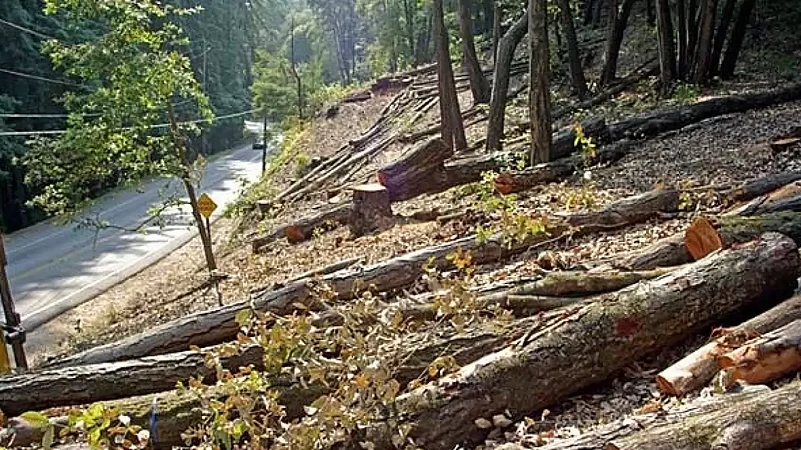A Joint Parliamentary Committee (JPC) approved the report on the Forest Conservation (Amendment) Bill, 2023 on July 11. This means that the amendments in Forest Conservation Act of 1980 have been approved. The amended Bill is likely to be tabled in Parliament in the upcoming Monsoon Session. This will definitely lead to a furore and debate in Parliament. When the Central government had circulated the proposal note on the Bill in October 2021 for public comments, it had garnered around 5,000 responses.
Those who are objecting to this Bill include social workers, forest specialists, and hundreds of erstwhile forest officials. These former officials have written a letter to Members of Parliament, expressing their deep concern on the Forest Conservation (Amendment) Bill, 2023. The former officers have raised apprehensions on both the content of the Bill and the process being followed for its passage.
This year during the Budget Session, the Forest Conservation (Amendment Bill), 2023 was introduced in Parliament. The Forest Conservation (Amendment) Bill, 2023 was introduced in the Lok Sabha and subsequently referred to the Select Committee of Parliament. Congress MP and former Minister of Environment and Forests, Jairam Ramesh, has raised objections to the Bill and said that it should have been sent in its ideal form to the Standing Committee of the concerned ministry. Ramesh and many Congress leaders are of the view that the present government is taking some harsh steps and trying to bypass the Standing Committees. It is noteworthy that Jairam Ramesh is the President of the Standing Committee of the concerned ministry.
Nevertheless, former forest officials have also raised objections to the process. They are concerned about the changes being brought in the Bill and weakening of the Forest Rights Act (FRA) of 2006, Village Committee and PESA Laws. According to Forest Conservation (Amendment) Bill, 2023, an area of land can be exempted from the legal framework for a quick accomplishment of any political- and security- related projects that are of national interest. Forest land that has been proposed to be exempted include land that has been declared or notified as a forest following the provisions of the Indian Forest Act, 1927 or only forest lands that were recorded as forests after the implementation of Forest Conservation Act of 1980.
Experts who understand forest laws are of the view that the amended Bill does not have any mention of FRA, 2006. It does not even mention the consensus or permission being sought from the Village Committee for this. These experts are of the view that the proposed land on which the government wants exemption through amendment, the potential beneficiaries have land rights on the forests as per FRA of 2006. According to one report, there are 1,70,000 villages in India, in which more than 200 million tribals and aboriginals reside. These people have their land rights on 85.6 million acres of land under FRA.
Tushar Das, who is an independent researcher, says, “If the forest land which is notified or recorded in government books, is used for any project or industry, a forest clearance has to be taken. This process of clearance takes place through several departments. The government through this amendment wants to keep a big chunk of land away from the clearance process. That is, away from the provision of clearance mentioned in the Forest Conservation Act, 1980. It has to be seen whether the forest land being kept outside is actually a deemed forest (physical parcels that look to be forested but are not listed as such in historical or official records). It is noteworthy that on this deemed forest the tribals and the aboriginal forest dwellers have their land rights as per the FRA of 2006. Now the FRA states that the Forest Rights Law will be applicable on all types of forest lands of the country. This means that the Village Committee and the tribal community will have their rights on the said land. However, when these forest lands get removed from FCA and clearance processes, then the Government will not be bound to take permission from the Village Committee.”
According to Tushar, the Tribal Ministry and National Commission for Scheduled Tribes of the Government too have raised their objections on the amended Bill. However, the Union Ministry of Environment and Climate Change has bypassed these objections. Jharkhand Forest Rights Forum has also raised its objection to the amended Bill. The coordinator of the Forum, Sudhir Pal, says that in the amended Bill there are provisions to deploy private companies and provide forest lease to them to take care of the forests and non forest activities.
Pal adds, “The spirit of both the Village Committee and FRA has been killed. The amended Bill says that the compulsory condition of seeking permission with regard to forest clearance that was till date present has been removed. For linear projects like roads, drainage and electric poles construction, the permission from Village Committee need not be taken as was done before. No clearance will be taken for social impact assessment and environmental impact assessment. This means that the Government can start doing non-forest activity on a forest land without taking permission from the Village Committee. They can give contract to any private company and can settle them on that land. The supremacy of Village Committee is over.”
The experts on Forest Law are of the opinion that after the amendment, the diversion of the forest land for different projects will become an easy process legally. Deforestation will increase in forests. FCA of 1980 was a historical Act for the conservation of forests. If we look at 30 years before this Act of legislature was passed, 4.5 million hectares of forest land was destroyed as the forest land was being used for non-forest activities. If we look at 40 years after this Act came into force, we realise that 1.5 million hectares of land has been used. Between 2018-19 and 2022-23, 90,000 hectare of forest land has been diverted for non-forest use.
He also says that the amendment has redefined forests which contradicts the orders of the Supreme Court in TN Godavarman Thirumulkpad versus Union Of India case of December 12, 1996.
In the amended Bill, there have been discussions on climate change and carbon sink too. Researcher Tushar Das says, “Government has been talking about plantation for climate change mitigation from the beginning. Making carbon sink is a part of the Bill. Government believes that Compensatory Afforestation Fund Management and Planning Authority (CAMPA) will be used for the creation of carbon sink through additional forest and tree cover. However, for afforestation they need land. They do not have land. As such, they will use the deemed forest, the community forest meant for the tribals. Through amendment and without clearance and seeking the permission of the Village Committee, the land will get diverted to non-agricultural purposes.”
According to Tushar, the largest concentration of tribals is found in Odisha, Chhattisgarh, and Jharkhand, and it is here that mining and forest diversion has taken place at a huge level. The tribals have been adversely impacted due to this and if the amended Bill becomes become an Act, they will get impacted on a large scale.
He also says that though Chhattisgarh and Jharkhand governments have raised their voices against the Bill, the Odisha government’s silence has become a matter of concern for the tribals of the state. Odisha has more than 50 per cent deemed forest area and if this area gets diverted, the tribals will get adversely affected.
(Translated by Kaveri Mishra)



























